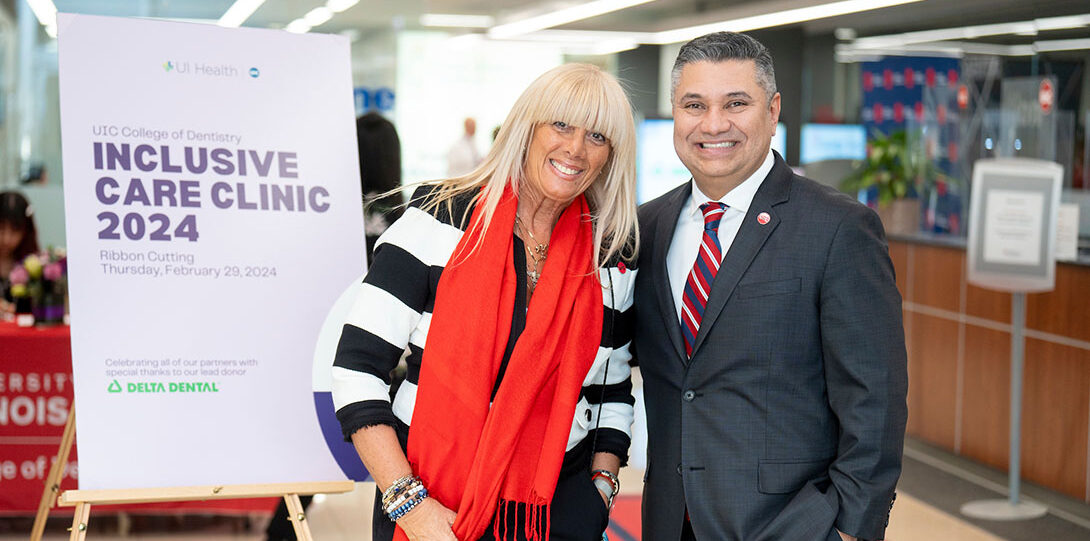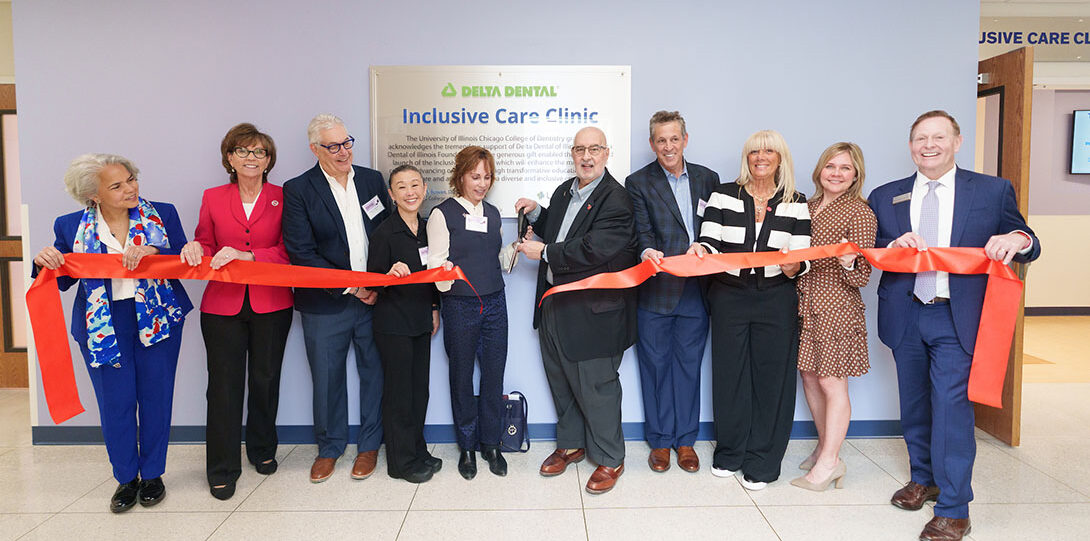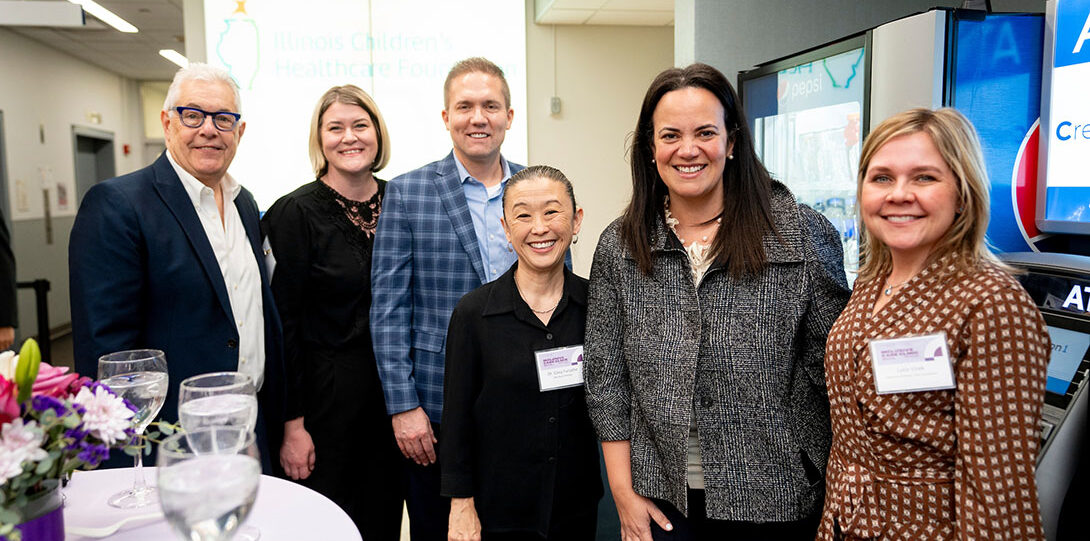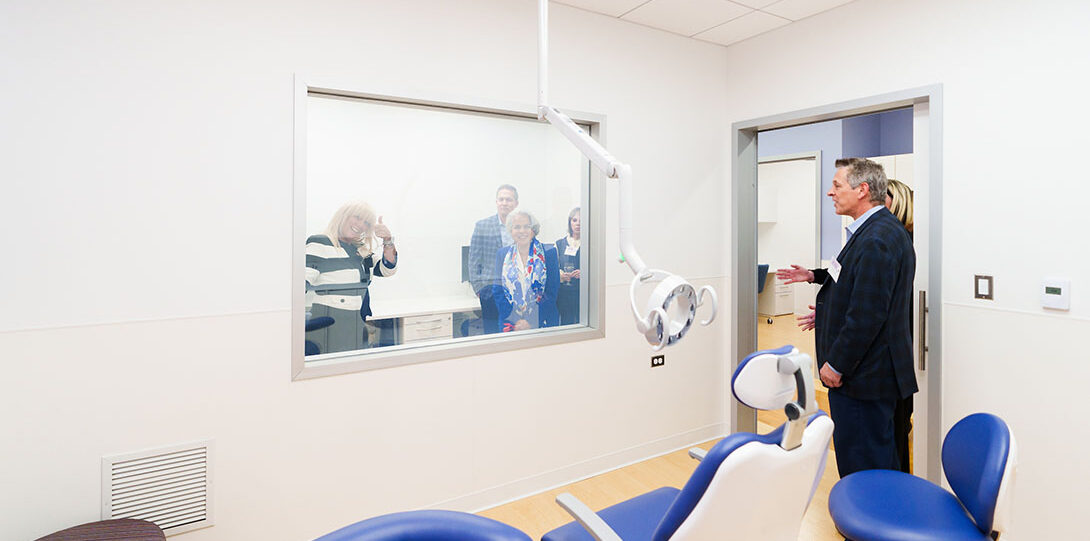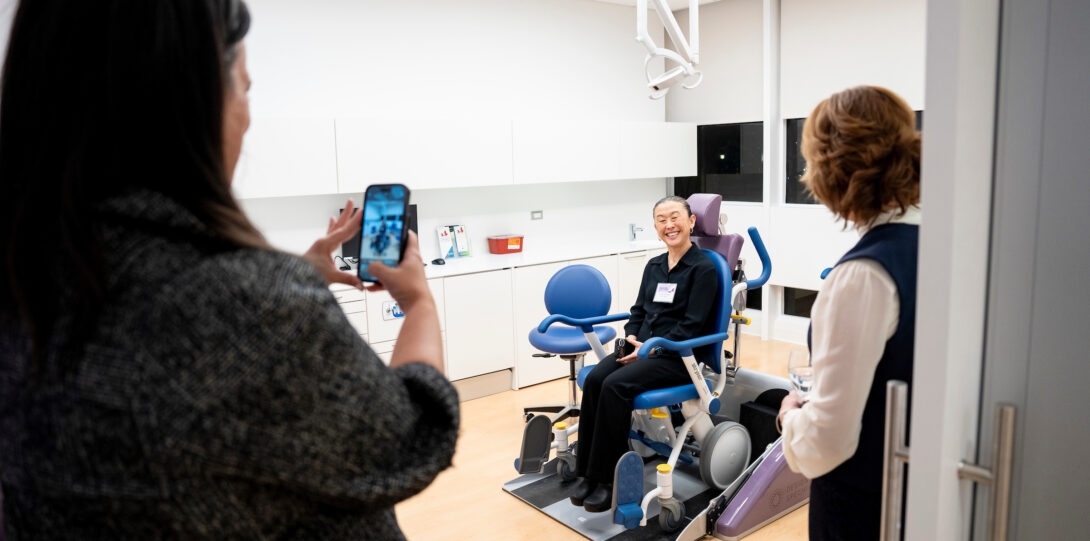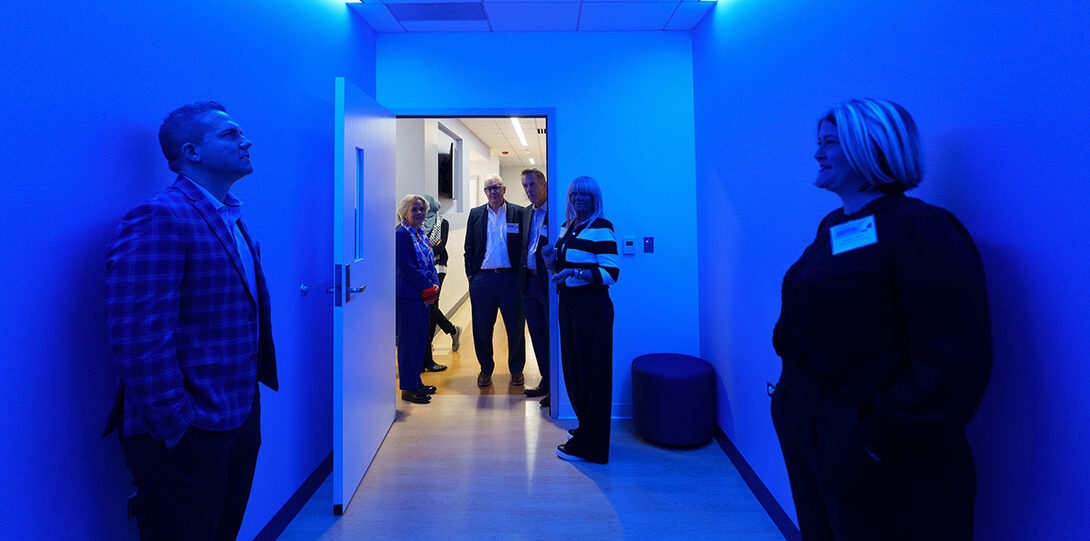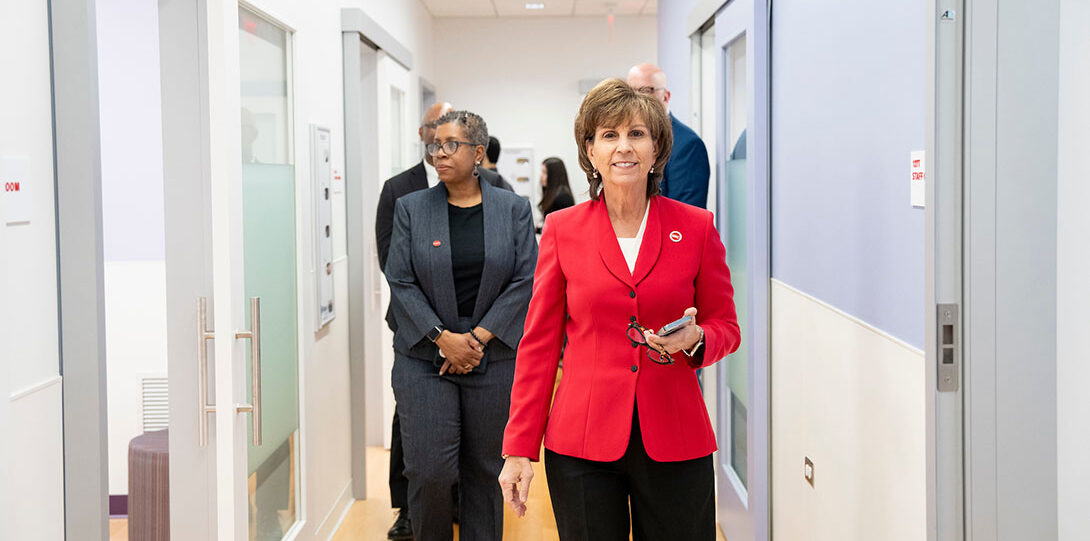New Inclusive Care Clinic to help patients with disabilities, offer students targeted instruction
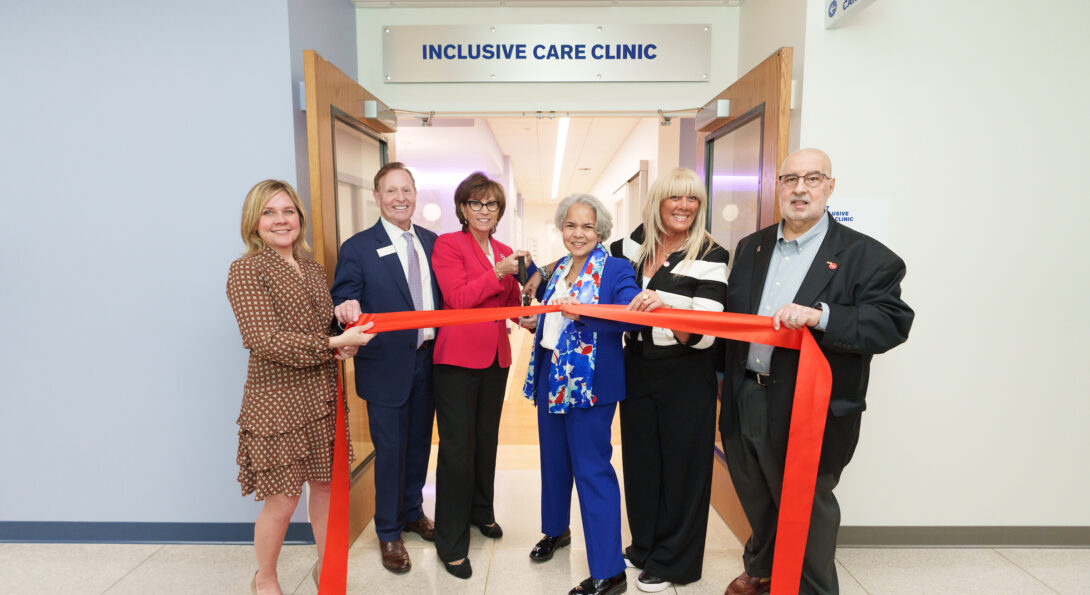
Introduction
Patients with disabilities often find it almost impossible to obtain oral healthcare. The University of Illinois Chicago College of Dentistry is working to solve that problem with the creation of the Inclusive Care Clinic, that not only will serve the needs of such patients, but also will train future dentists to administer care to patients with disabilities in their practices in decades to come.
Special health care needs include any physical, developmental, sensory, behavioral, cognitive, or emotional conditions that require medical management, intervention, or specialized services or programs.
“This is a population who gets lost very easily,” said Dr. Leda Mugayar, clinical associate professor of pediatric dentistry and director of the new clinic. “Pediatric dentists stop seeing them once they become young adults, and general dentists often do not provide care for them. So there is a strong need for such a clinic and program. There is no other clinical care combined within a dental school educational program like this in the Chicago area and Illinois.”
Faculty, staff, and students in the new clinic will treat patients who have physical and cognitive disabilities, behavioral conditions, mental illness, and developmental disabilities such as autism. They also will provide care for elderly patients with such conditions as Alzheimer’s and Parkinson’s. Along with providing unmet special care services for patients and opportunities for students to gain experience to provide clinical care to patients with special needs, the clinic also will offer research opportunities.
The clinic will provide preventive, comprehensive, multi-disciplinary, emergency and rehabilitative oral health treatment, as well as general health assessments to approximately 16 patients per day or 80 patients per week. Each day, the clinic will be staffed by 12 fourth-year dental students and one third-year dental student rotating per session, supported by two dental assistants, two front desk staff, a hygienist, and several faculty supervising care.
“The student-to-faculty ratio will be smaller than in the other clinics because of the high level of care required for patients with disabilities,” explained Dr. Susan Rowan, dean of the college.
The major sponsor is the Delta Dental of Illinois Foundation, which has committed funding for construction and infrastructure.
“Oral health is essential to our overall health and well-being, and we believe every Illinoisan deserves a healthy smile and good oral health,” said John T. Maples, president and CEO of Delta Dental of Illinois. “Our Delta Dental of Illinois Foundation is committed to improving overall health for all Illinoisans, oral health education, and of course access to care are key drivers. Our diversity, equity, and inclusion (DEI) initiatives help drive this vision and our efforts.
“With like-minded-partners, Delta Dental of Illinois Foundation works to help those in our community, including those most vulnerable, get the healthcare and education they need,” Maples noted. “We have a long-standing partnership with the UIC College of Dentistry and have been a proud partner for years. UIC College of Dentistry is a proven leader and we are so pleased to once again partner with them in supporting the Inclusive Care Clinic.”
Special facilities, equipment
“Everything in this clinic has been chosen for patients with disabilities, from calming colors to special equipment,” Mugayar explained.
The clinic has eight operatories equipped with specially designed chairs. “They are like barber chairs or old-fashioned dental chairs in which the patient can sit and not have to scoot in, so that’s helpful for people with limited mobility,” she said.
One operatory is equipped with a special wheelchair lift so a patient can be treated in their own wheelchair.
The clinic also includes a desensitization room to calm patients who have sensory issues, an x-ray room, a sterilization area, a staff room, a consultation room, and an area with a feature that is new for the college—teledentistry for initial screening and follow-up.
“This will be the first opportunity for our dental students to be introduced to the concept of teledentistry, as they will have a virtual encounter in advance of the physical presence of the patient,” Rowan said. “This is supportive of the patients themselves, as they don’t have to travel—which is tough on this population—and be present in the college for lengthy interviews and information gathering when it can be done prior to arrival. We also will use teledentistry for acquiring medical consultation that may be necessary, which will avoid delaying or interrupting care.”
“The objective is to enable the students to provide treatment for patients with disabilities, with the hope that when they graduate they will be able to provide initial assessments and basic dental treatment for such patients—which will help a lot because few dentists in the private sector see these patients now,” Mugayar said.
With an increased number of requests for care for patients with disabilities, “there was a growing recognition that not only could our students benefit, but the community really needed the support,” Rowan explained. “Many of the patients have Medicaid insurance and have few options in the community for specialized care. Being a large provider of care for patients insured with Medicaid, an inclusive care clinic seemed like a natural extension of our core missions of education, patient care, and research—as well as an additional mission we recently added: advocacy.”
The ribbon-cutting ceremony for the Inclusive Care Clinic was held on February 29, and included leadership from UIC and its academic health enterprise, UI Health. UIC Chancellor Marie Lynn Miranda and UIC Vice Chancellor for Health Affairs Dr. Robert Barish celebrated the event with College of Dentistry leadership and generous benefactors.
“UIC’s mission is to provide the broadest access to the highest levels of educational, research, and clinical excellence,” Miranda said. “This clinic exemplifies those goals. It provides access to excellent oral health care to patients with disabilities, who are often left out of the health care system. It provides a living laboratory for advancing our understanding of how to care for these patients. And it exposes our dental students, who will fan out across the state and nation, to the elements required to provide care to an underserved patient population. UIC College of Dentistry continues to lead with excellence and compassion.”
“The college plays an integral role in providing a wide spectrum of oral health services. We appreciate the value of this interaction among our dental students, faculty and researchers and how it contributes to our ability to address the robust health needs of our communities – and often complex procedures that rely on our network of expertise,” Barish said. “This Inclusive Care Clinic is another outstanding addition to the full spectrum of oral health care provided by the College of Dentistry.”
The Inclusive Care Clinic will begin treating patients with disabilities in the coming weeks.
